Services
With a focus on children, Kochkok offers top-tier dental services entirely free of charge, providing a comprehensive range of treatments from basic procedures like tooth extractions and cavity fillings to advanced restorative and endodontic care, such as root canal treatments and stainless steel crowns.
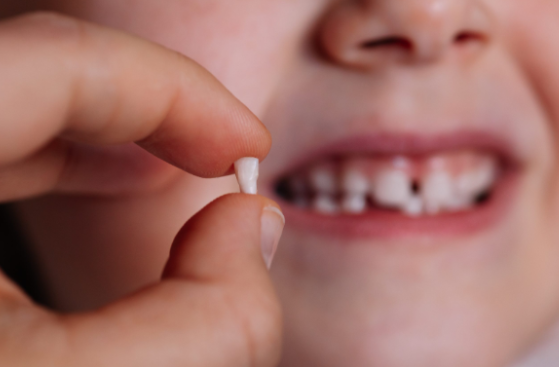
Tooth Extraction
Removing a damaged or decayed tooth from its socket. Extraction is necessary when a tooth cannot be saved due to issues like deep decay, severe gum disease, or fractures. In children, deciduous (baby) teeth might be extracted if they prevent permanent teeth from emerging properly.
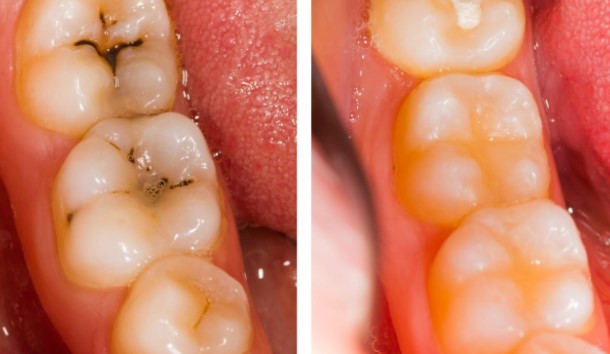
Composite Filling Restoration
Repairing a tooth using composite resin to restore its function and appearance. Composite fillings remove decay and fill the tooth with a natural-looking, tooth-colored material, making it ideal for front teeth where appearance matters. This method is suitable for both children and adults.
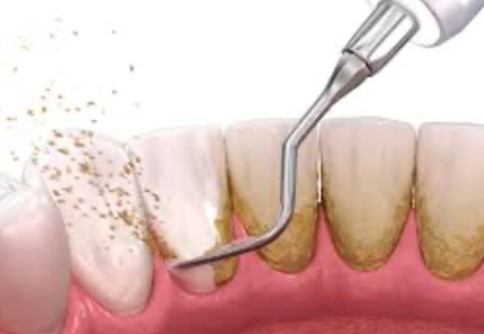
Scaling
Removing plaque and tartar buildup on teeth, especially around the gumline. Scaling is a deep cleaning procedure to prevent gum disease and bone loss around the teeth. It can be performed manually or with an ultrasonic device, the latter being more comfortable and efficient.
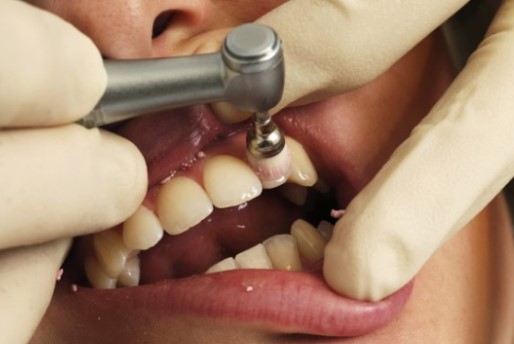
Polishing
Smoothing and polishing the tooth surface after scaling. After scaling, polishing removes stains and roughness, using a special paste and brush. This optional step gives teeth a smooth, shiny finish and reduces plaque accumulation.
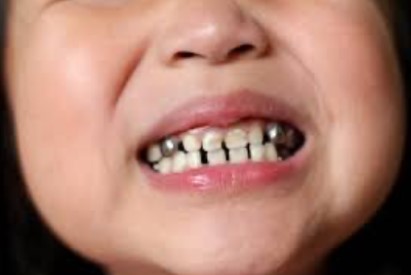
Stainless Steel Crown for Deciduous Teeth
Placing a metal crown on a deciduous (baby) tooth to restore its function. Pre-made metal crowns protect decayed or damaged teeth from further breakdown. They are durable and often recommended for baby teeth after procedures like pulpotomy or pulpectomy. For permanent teeth, they provide strong protection, especially for back molars that need to endure chewing forces.
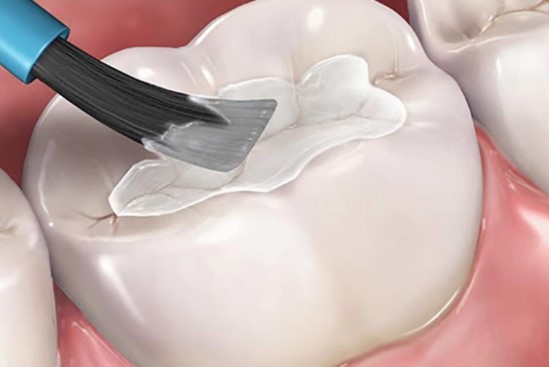
Fissure Sealant
Applying a protective layer on the chewing surface of permanent back teeth. Sealants are a preventive treatment for first permanent molars, reducing decay risk without drilling. This clear or tooth-colored layer smoothens the surface, making it easier to brush and maintain.
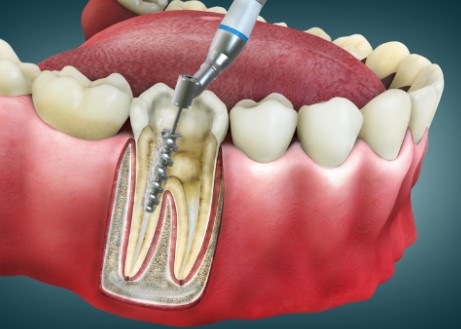
Root Canal Treatment (RCT) for Permanent Teeth
Removing infected or damaged pulp tissue inside a permanent tooth. Commonly known as a "root canal," this treatment is performed when a tooth’s nerve is infected due to decay or trauma, causing pain with cold, heat, or chewing. The infected pulp is removed, the canals are cleaned, and the tooth is sealed to prevent further damage.
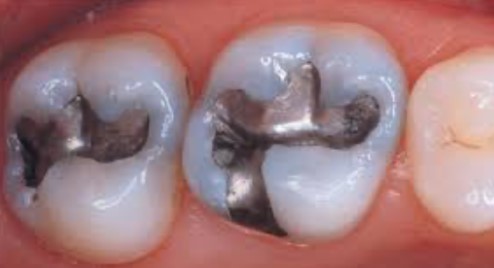
Amalgam Filling Restoration
Using a silver-coloured metal alloy to fill a cavity and restore tooth function. Amalgam fillings, although less attractive than composites, are highly durable and often used for back teeth that must withstand chewing forces. This material is especially helpful for patients who may struggle with oral hygiene, as it resists wear over time.
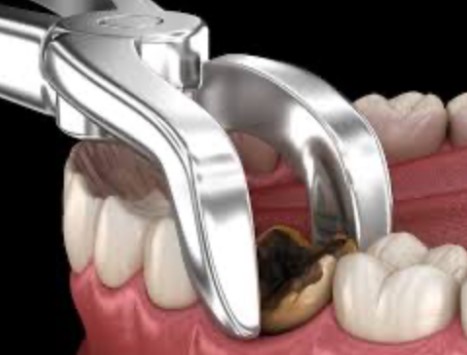
Tooth Surgery
Surgical procedure for treating impacted, damaged, or infected teeth. Tooth surgery is performed to remove impacted or fractured teeth, or remaining roots. An x-ray usually guides the procedure to reduce risks. In remote areas, portable x-ray systems (RVG) are available to support such treatment.
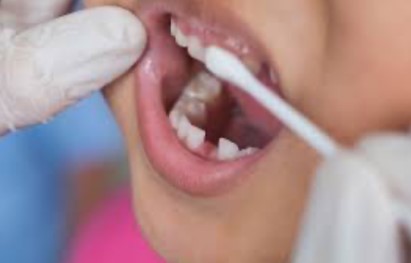
Fluoride Therapy
Applying fluoride to teeth to strengthen enamel and prevent decay. This preventive treatment is often used for children after their primary teeth or first permanent molars erupt. A fluoride gel is applied to cleaned teeth surfaces, reducing cavity risk. Regular applications are important for effective prevention.
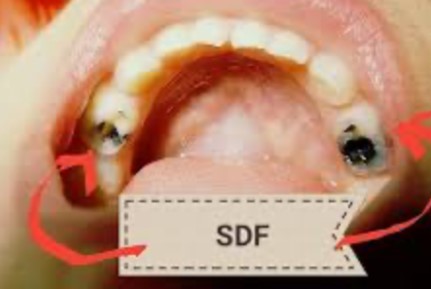
Silver Diamine Fluoride
Using a fluoride-based solution to stop tooth decay. SDF is a non-invasive treatment that stops cavities from progressing, especially useful for children’s teeth. The silver diamine fluoride solution also helps reduce sensitivity, making it effective for both cavity prevention and comfort.
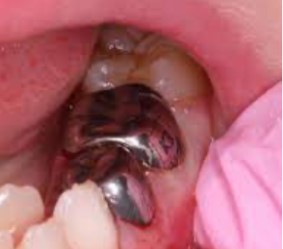
Stainless Steel Crown for Permanent Teeth
Covering a damaged permanent tooth with a metal crown. Like the crowns for baby teeth, this metal crown protects a damaged permanent tooth from further wear or breakage. It is commonly used on back molars due to its durability.
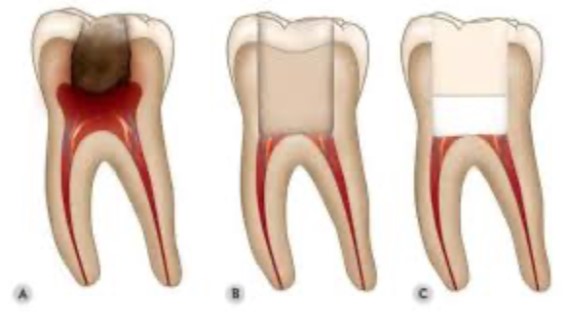
Pulpotomy
Removing the infected pulp tissue from the crown of a baby tooth while preserving the roots. A pulpotomy removes only the top (crown) portion of infected pulp tissue in baby teeth, leaving the root canals intact. This treatment relieves pain and infection while keeping the tooth functional until it naturally falls out and is replaced by a permanent tooth.
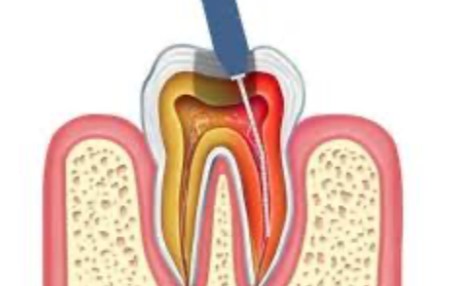
Pulpectomy
Complete removal of pulp tissue from the entire tooth, typically in baby teeth. Pulpectomy involves removing all infected pulp tissue in baby teeth to stop infection and pain. The root canals are filled to maintain the tooth until it naturally falls out and is replaced by a permanent tooth.
